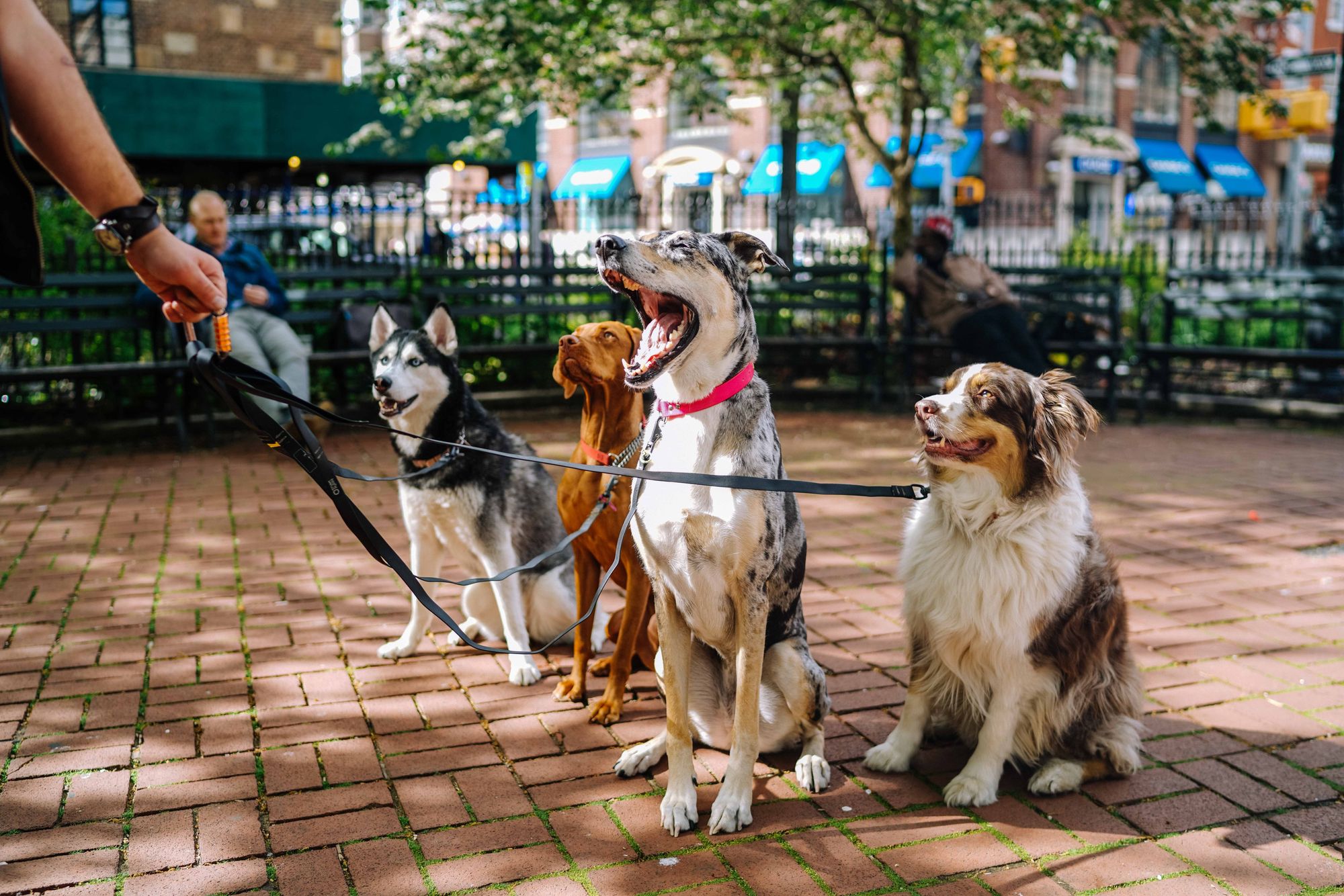
How I Built a 15,000-Person Community In Under 2 Years
Jamie Ruden always knew she wanted community to be a big part of her platform for pet parents—but creating community from scratch is no easy feat. Here are the three steps she used to succeed.
Founder of Dog Spotted
The saying goes that it takes a village to raise a child. Well, I believe the same is true for dog parenthood. When I fostered my first puppy only to quickly find out he had fleas, I felt lost and in need of people I could turn to for trustworthy information, and as a dog mom today, I’m regularly looking for community support.
So, when I started Dog Spotted to help NYC dog parents navigate the ins and outs of living with these adorable pets, I knew that community would be a big part of it. I didn’t just want a platform where dog parents could come to get expert advice and find the best local pet businesses; I wanted a place where they could all support each other on their journey.
Of course, wanting a community and actually creating one are two very different things. The paradox of community-building is that it can often feel like you need community in order to create community. After all, nobody wants to show up to an empty party.
It wasn’t easy, but I made it happen: About a year and a half since launching, Dog Spotted has a thriving community of over 15,000 dog parents. Retrospectively, there were three main steps that I think helped us succeed—a process I hope other business owners can learn from when building communities of their own.
1. I Partnered With My Dream Advocates From the Start
In the early days, partnerships were our most powerful strategy for growing our community. We partnered with dog experts to create trustworthy content for our users. We partnered with dog influencers, both micro (as few as a couple hundred followers) and macro (tens of thousands of followers) to do virtual events that gave us access to their audience and aligned our community with a face people already knew. We even facilitated partnerships between the small businesses and influencers we worked with—the influencers would get free products, the brands would get exposure, and everyone would see us as a meaningful connector in the pet space, which propelled our reputation forward.
Doing simple Instagram Lives with expert influencers like @seniordogdoc grew our awareness among their audiences and gave us valuable, trustworthy content.
I think these collaborations succeeded in a few ways to help us gain momentum. Obviously they built awareness that my brand even existed among the types of people I wanted to create the space for. They also made it look like the Dog Spotted community was already thriving: If all of these influential pet parents were already involved, who wouldn't want to join in? Finally, they helped me build a foundation of trust amongst new members coming into the community. By partnering with experts that people already trusted, it built our clout.
Many people are afraid to partner with similar businesses because they think they’re a competitor, but I truly believe collaborations can only be a net positive. There’s more than enough people who are passionate about their pups that all of our businesses can exist together. Share what makes your business different, and people will be thrilled to support both.
Many people are afraid to partner with similar businesses because they think they’re a competitor, but I truly believe collaborations can only be a net positive. - Jamie Ruden, Founder of Dog Spotted
2. I Empowered Community Leaders Beyond Myself
I could see that our partnerships were doing a lot for us in terms of growing our site visitors, social reach, and email subscribers. But I could see that turning that into an engaged community was going to take a little something extra.
Around that time, I read the book Get Together, and it taught me the secret sauce: Building true community involves not only inviting people in to get involved, but asking them to take on a role. It can be so tempting as a founder to try and keep control of everything, but if I wanted to go from just being a source of information to being a source of community, I was going to have to pass the torch.
The first time I tried this was when we were planning a week-long walkathon to raise money for seven rescues in NYC. My team could have done all of the planning and promotion ourselves, but instead we pulled in “team captains”—community members who were really enthusiastic about the event—to help spread the word, get signups, and lead walks throughout the week. We gave them some guidelines around our community values and norms, then let them take ownership.
Letting Dog Spotted members like @goodb0ycody head up aspects of our walkathon event made them feel more community-oriented and authentic.
3. I Created Different Spaces for Different Community Members
Finally, to keep my community engaged over time, I’ve found it helpful to create different channels so that individuals can interact how they prefer and get exactly what they need from the space.
For instance, while we love offering events for our members to meet in person, some may just want to follow us on Instagram for a regular infusion of dog advice. While Instagram is our most popular channel, our email has really high subscriptions and engagement because it includes content that can’t be found elsewhere.
We’re getting ready to uplevel our community by building a stand-alone online platform where NYC dog parents, experts, and businesses can come together. While the goal in doing this is to centralize everything we’re doing in one place, I never want to be prescriptive about how people need to engage with the community. I think it will add value to most members to be able to get everything they need in one place, but some may prefer to stick to one of our existing channels, and that’s okay.
As a final note, I’m committed to ensuring every member of our community continues to feel valued and invested in over time. Just like a plant, you can’t stop feeding a community when it’s reached the size you’d like—it’s always going to need attention even when it’s grown to a healthy number. If anything, I feel like I have to invest more time and resources into my community the larger it gets.
But as much work as it is, investing in my community is investing in the future of my business. Competitors may come in and steal our ideas, but they can never take away the people who trust our brand because of the support we’ve provided and the connections we’ve built.
Competitors may come in and steal our ideas, but they can never take away the people who trust our brand because of the support we’ve provided and the connections we’ve built. - Jamie Ruden, Founder of Dog Spotted
Try Buffer for free
140,000+ small businesses like yours use Buffer to build their brand on social media every month
Get started nowRelated Articles

When these brand owners opened their first brick-and-mortar store, they learned lessons that helped improve their social media and grow their sales both on and offline.

There are plenty of ways to monetize on Pinterest. Here's a guide to some tactics for both creators and small businesses.

Learn why this expert marketer thinks X is one of the best advertising platforms right now, and see how to get the most bang for your buck.